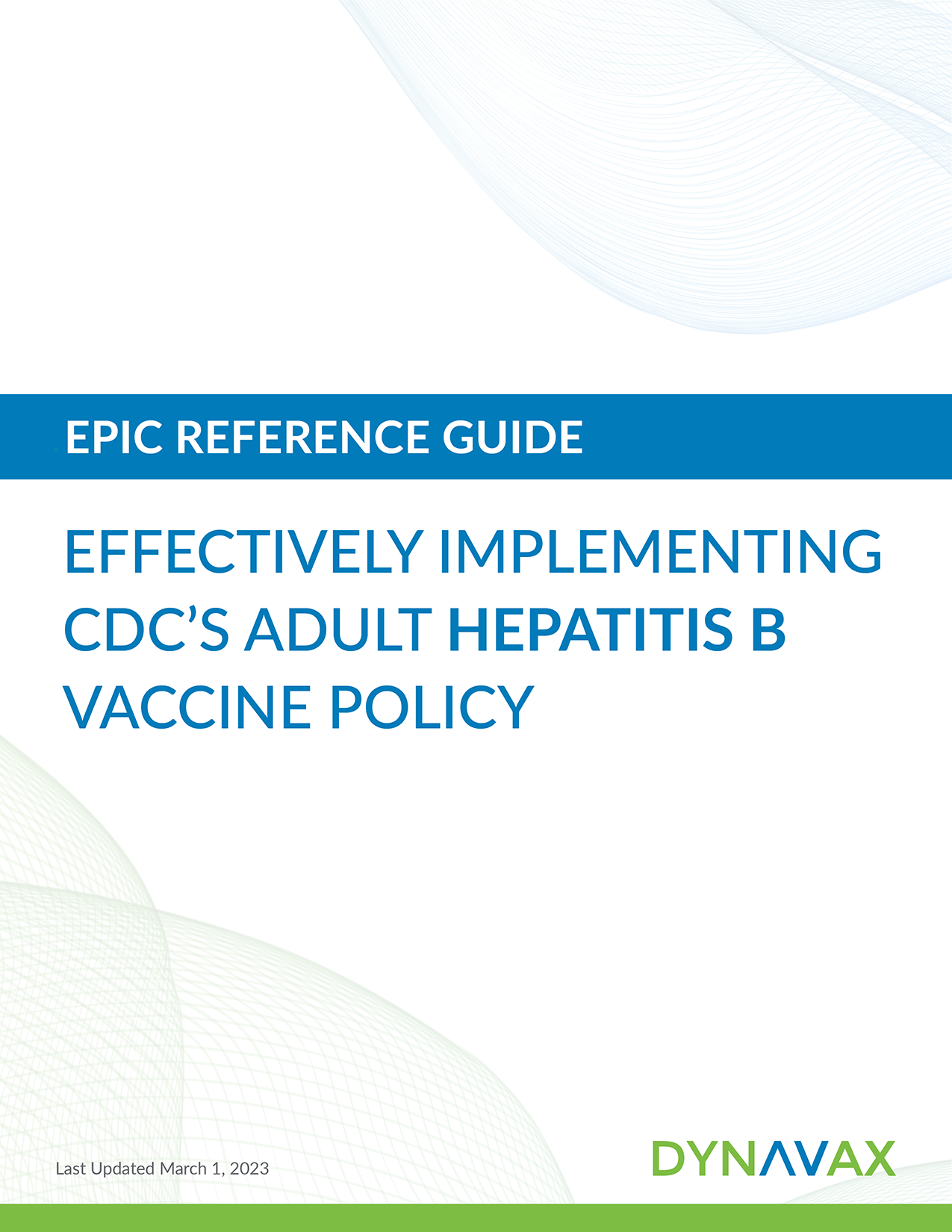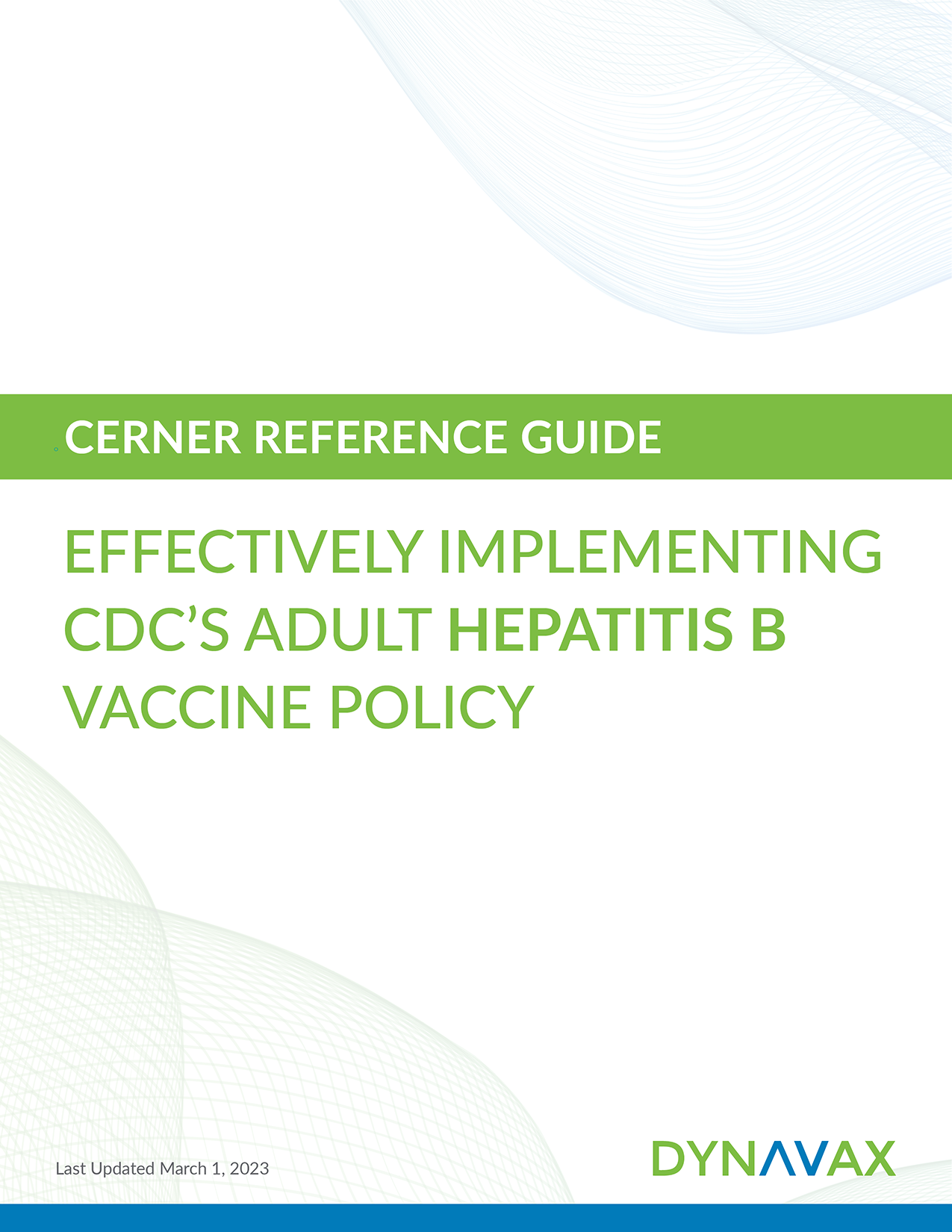EHR Reference Guides
The electronic health record (EHR) reference guides below are intended to help facilitate hepatitis B vaccination within your health system, in line with the Centers for Disease Control and Prevention (CDC) hepatitis B vaccination policy in adults.1,2
The following reference guides highlight decision support tools, chart functionalities, and population health strategies specific to Epic and Cerner software systems that can be leveraged to effectively implement hepatitis B vaccination in millions of adults who are now eligible for immunization.3


References:
- Weng MK, Doshani M, Khan MA, et al. Universal hepatitis B vaccination in adults aged 19-59 years: updated recommendations of the Advisory Committee on Immunization Practices – United States, 2022. MMWR Morb Mortal Wkly Rep. 2022;71(13):477-483.
- Murthy N, Wodi AP, Bernstein H, McNally V, Cineas S, Ault K. Advisory Committee on Immunization Practices Recommended Immunization Schedule for Adults Aged 19 Years or Older – United States, 2022. MMWR Morb Mortal Wkly Rep. 2022;71:229-233.
- Data on file. Dynavax Technologies Corporation; 2022.